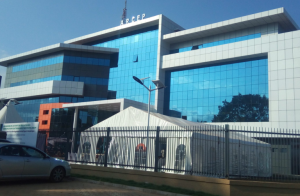Senegal: Digital technology, a pillar of economic recovery and tax justice

Facing a critical budgetary situation—with a deficit estimated at 14% of GDP and public debt reaching 119% in 2024—Senegal is turning to digital technology to revive its economy and clean up its public finances.
It is in this context that Prime Minister Ousmane Sonko unveiled Jubbanti-Koom in early August, a new Economic and Social Recovery Plan that serves as the foundation of the country’s Vision 2050.
The plan aims to restore fiscal sustainability while funding more inclusive development. Digital technology lies at the heart of the strategy, both as a driver of growth and a tool for expanding the tax base. Several measures focus on better regulating and taxing high-growth digital sectors, which have often remained underregulated. Key targets include online gaming, digital advertising, video-on-demand platforms, influencer income, and mobile money. The government hopes to generate up to 400 billion FCFA in additional tax revenue per year through these reforms.
One of the flagship measures is the taxation of Gross Gaming Revenue (GGR) generated by online betting and gambling, which are mostly controlled by foreign companies. Player winnings will also be taxed, with a dual objective: boosting state revenues and protecting young people from the risks associated with gambling.
The reform also includes enhanced digitization of public procurement, aimed at improving transparency, streamlining expenditures, and better tracking financial flows. Mobile money, now central to daily transactions, will undergo fiscal optimization as well.
A key technical component of the plan includes: widespread adoption of digital identification, modernization of tech infrastructure, and the launch of a Technological New Deal to support the emergence of new digital services.
In a country where the digital sector plays a major role in the informal economy, these measures are designed to curb tax evasion, formalize digital actors, and structure a sustainable ecosystem. In the long term, the government aims to make the digital economy a true engine for inclusive growth and fair taxation.






